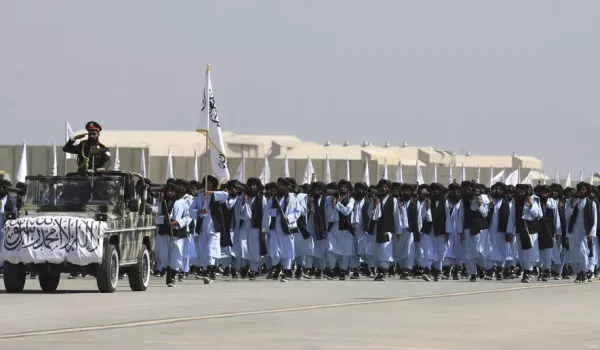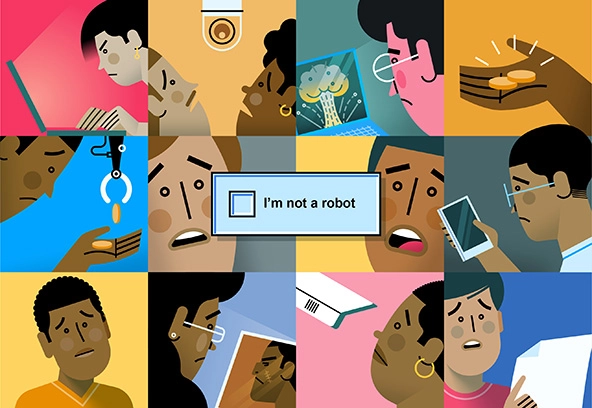How Teachers Made the Best of the Worst: A Moment of Thanks to Cherokee Educators as the School Year Comes to a Close
Courtesy of Dr. Carol Birnbohm/ Twitter
The staff of the Lenape Regional High School District
As the school year draws to a close, there is a rather anticlimactic ending to the 2019-2020 educational year. In a normal school setting, Cherokee would be full of joy and pride right about now. Hallways would be crowded with laughing students in summery attire, future graduates giddy at the prospect of college, and smiling teachers proud of their year’s work and ready to close their classrooms up for the relaxing and easygoing summer months. With everything going on this year, however, Cherokee staff and students’ closure for the year might just be boiled down to a few items returned to school property and the closing of a laptop.
Online education leaves students with much to be desired regarding what normally is an amazing time at Cherokee: the final days of school. When it comes to disappointment however, it is worth noting that students aren’t the only ones let down. Behind the scenes, teachers have spent the past months working as hard as ever, if not harder, to make online class an exciting and educational platform for students. Many have gotten creative with how they present information, solved technological problems, and pushed past their own disappointments about this turn of events to find ways to connect with their students in every way that they could. In this tough situation, some have made the best of the circumstances given to them. Cherokee teachers definitely fall into that category.
No one can deny that one of the hardest aspects of socially distanced learning for students was the loss of in-person connections with fellow peers, teachers, coaches, etc. This feeling wasn’t one-sided: teachers, too, have had to struggle with the loss of their bright and chatty classrooms and their opinionated and eager students. For a lot of teachers, the best part of the job is their students; having this taken away and changed completely was a curveball many teachers weren’t expecting in the least.
“…The daily conversations with the kids and the personal relationships you build with them are the best part of the job,” quotes English teacher Mr. Misuraco. “[I] was abruptly being cut off from so many people that I look forward to seeing on a daily basis,” he says.
Science teacher Mrs. Senft agrees, saying, “First and foremost, I miss my students! I miss seeing them every day and saying hello. I miss their energy and funny stories. I miss my coworkers.”
As these comments show, nostalgia for everyday contact is a big part of the struggle of online school. This loss of personal connections is just one of the things teachers have had to push through in order to give their students the enthusiasm for learning and positivity that teachers naturally have to embody.
For many, school is a second home. It is a place to which students can escape and form friendships, relationships, and new perspectives. Many teachers play a guardian-like figure in their students’ lives, especially to those who have an unstable or rocky home life. Teachers can make their students feel welcome, understood, appreciated, and cared for. Many forget that the teacher-student relationship often goes beyond simple education; teachers can inspire their students to be better, to be more interested and involved in the school environment, and can teach their students a lot about life in general, not just their subject of knowledge.
Creative writing and English teacher Mrs. McGarrity puts the dynamic eloquently, saying “[In-person schooling] engenders laughter, banter, and an ease of conversation that are some of the joys of camaraderie.”
It is clear that teachers, too, miss the special dynamic that in-person school offers, the second home that Cherokee has become to so many who have found comfort within its walls.
The struggle of transitioning to online learning for so many educators, however, was not just emotionally-based. While some teachers were very tech-savvy going into their new situation, others were not so accustomed to having to use more than their board and their voice to get information across.
“My learning curve was steep,” describes History teacher Mr. Ellis. “Once I had the most basic understanding, navigating day-to-day instruction was much less daunting,” he says.
While most students are very familiar with google classroom and technology programs, many teachers were not as learned on the subject, making it a real challenge. It is no question, though, that teachers have tried to make online learning as educational and accessible as ever.
“Believe me,” Mrs. Senft asserts, “they [teachers] put a lot of time, thought, and effort, into what they assign.”
This is especially admirable when considering the task of so many teachers. They were forced to make an abrupt switch to online in the middle of the curriculum, for multiple different classes and often topics, taking into consideration the global pandemic, the personal lives of their students, marking period end-dates, AP testing, and so much more. Many teachers have gone into their field for a love of their subject, or for people and personal connections, not for a love of technology. Nevertheless, in order to have the former, educators in these past few months have had to conquer the latter.
For both teachers and students, online school has clearly been a learning experience. The independence and initiative required for online education is valuable to students as practice for their futures in college, careers, and as independent members of society.
Mrs. Senft brings up this valuable aspect of online school, saying, “In college, students are expected to learn things on their own and identify for themselves when they have questions. Can students not do their work, not study, or not go to class in college? They can, but they also then pay the price in their grades! The same is applied in remote learning, just not as expensive a mistake here,” she adds. This is a prime example of teachers finding the good in a difficult situation, and wanting their students to take away the best lessons from a less-than-ideal experience.
While online school offers a type of connection between students and teachers, it is often the in-person conversation that makes schooling worthwhile. Class discussions offer a place where every student’s opinion matters, and where educators and students can come together and talk about important or even trivial matters. It is a kind of dynamic that is simply irreplaceable. Zoom calls and Google Meets can only barely imitate this kind of deeper connection which occurs in the classroom environment. Teachers can record their lectures, but the conversation can feel one sided.
“It’s challenging to create a dialogue when you are the only voice you hear,” quips Mr. Ellis, a teacher known for relevant and engaging in-class discussions.
Evidently, online school has created a platform where education can be perhaps just as efficient but not nearly as socially beneficial. Still, the fact that school is still able to remain in session in these times is something to be grateful for.
“Honestly, I feel lucky that I can still do my job,” Mrs. Senft admits.
Despite all this, there’s simply no denying the praise that all educators in Cherokee deserve as this difficult school year winds down. They have dealt with the loss of their old classroom dynamics, struggled, persevered, learned, and essentially have paved the way for all of their students to follow closely behind. The meaning of school in these past months has changed for everyone – what it is, what it entails, and the role it plays in all of our lives. Change is often difficult and unwanted, even hard to swallow.
Mr. Misuraco sums it up perfectly, quoting, “Losing all the extra stuff that makes Cherokee so great was and is the hardest thing for me to reconcile about this spring.” He’s definitely not alone in that sentiment.
Thankfully, our teachers, unlike school, have not changed one bit. They are still just as strong, just as skilled, and just as willing to aid their students the best way they can. And just as our teachers are unchanged, so are their students. Although behind the scenes, the level of admiration Cherokee students have for their teachers is unyielding, and they continue to smile at their teachers’ antics and opinions, even if through a screen during a Google Meet or a recorded lecture video. There’s nothing one-sided about that.







